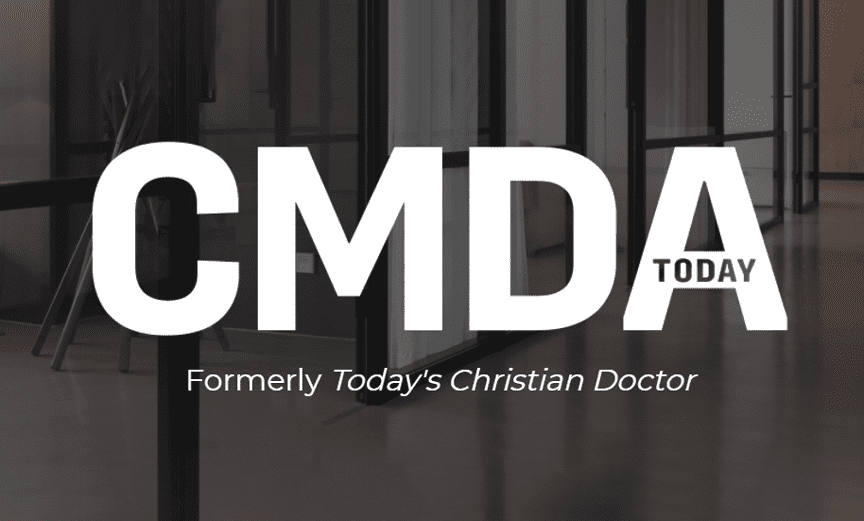
HHS Protects Conscience Freedoms
Conscience-guided healthcare professionals and students received a healthy dose of positive federal policy advances in the last few months. CMDA played a role advocating on behalf of our members in each of the following federal policy reforms that relate to conscience freedom, gender issues and abortion.

Conscience-guided healthcare professionals and students received a healthy dose of positive federal policy advances in the last few months. CMDA played a role advocating on behalf of our members in each of the following federal policy reforms that relate to conscience freedom, gender issues and abortion.
- New federal conscience rule combats coercion in healthcare.
What
A new federal regulation (rule) by the U.S. Department Health and Human Services’ (HHS) Office for Civil Rights now implements 25 federal laws relating to conscience.
When
HHS issued the final rule in May 2019, and it went into effect in July.
What It Means to You
HHS officials explain, “The rule will protect healthcare providers, individuals, and other health care entities from having to provide, participate in, pay for, or refer for services which violate their conscience. This includes ensuring that nurses, doctors, or medical students cannot be forced to participate in procedures which violate their religious belief or moral convictions – that might include procedures like abortion, sterilization, or assisted suicide. It also protects the right of diverse faith-based health care institutions to retain their religious beliefs and identity as part of their mission of serving others.”[1]
Director of the HHS Office for Civil Rights Roger Severino said, “Finally, laws prohibiting government funded discrimination against conscience and religious freedom will be enforced like every other civil rights law. This rule ensures that healthcare entities and professionals won’t be bullied out of the health care field because they decline to participate in actions that violate their conscience, including the taking of human life. Protecting conscience and religious freedom not only fosters greater diversity in healthcare; it’s the law.”[2]
CMDA’s Role
CMDA provided data and commentary on the proposed rule that HHS officials cited in explaining the final rule. In explaining its final rule, HHS eight times referenced CMDA’s 2009 polling of faith-based health professionals by Kellyanne Conway. The polling of CMDA members and members of other faith-based health organizations revealed the extent of discrimination experienced by respondents, as well as their determination to adhere to moral and ethical codes even if forced to leave medicine as a result.
What’s Next
A number of states, cities and pro-abortion groups have challenged the new conscience rule in federal court. In June, the Democrat-controlled U.S. House of Representatives used an appropriations minibus bill as a vehicle to repeal the rule. The White House issued a Statement of Administration Policy opposing the bill, noting, “The Administration strongly objects to the inclusion of section 240 of the bill, which prohibits the HHS Office for Civil Rights from using appropriated funds to finalize, implement, or enforce the newly published conscience protection final rule.”[3]
CMDA works closely with religious freedom law firms that can defend the rule in federal court. To learn more, visit www.freedom2care.org/laws-regs-cases.
- Transgender mandate reversal aims to restore biological definition regarding “sex discrimination.”
What
A federal regulation proposed by HHS would restore a biology-based definition of “sex discrimination.” The previous White House administration’s rule re-defined “sex discrimination” to include gender perception and would have opened the door to prosecute under discrimination law any healthcare professional who declined to cooperate in transgender procedures, prescriptions and other requirements.
When
HHS issued the proposed rule issued in May 2019 and the public comment period ended in August 2019.
What It Means to You
In an email I received, HHS officials explain that the proposed rule “eliminates expansive definitions of the term ‘sex’ when it comes to protection against discrimination on the basis of sex.” The proposed rule would revise 2016 provisions of Section 1557 rule that redefined discrimination “on the basis of sex” to include gender identity (which the department had defined as one’s internal sense of being “male, female, neither, or a combination of male and female”) and termination of pregnancy. A federal court has said this expansive definition is likely unlawful. The rule issued proposes a return to the plain meaning of the words used by Congress in prohibiting sex discrimination. Under the proposed rule, HHS would continue to vigorously enforce Section 1557 prohibitions of discrimination on the basis of race, color, national origin, disability, age and sex in certain health programs, while ensuring that Section 1557 and Title IX regulations include the language Congress enacted that protects religious entities and prevents Title IX from requiring performance of, or payment for, abortions.
CMDA’s Role
The federal court decision that HHS referenced as key to its proposed rule is a preliminary nationwide injunction issued in 2016 by a federal district court judge against the Obama administration’s transgender mandate rule. In that lawsuit, the Becket religious freedom law firm represented CMDA, a number of states and Franciscan Alliance, a Catholic health organization. For more information, visit www.transgendermandate.org.
What’s Next
HHS will review comments and likely issue a final rule in late 2019 or early 2020. Meanwhile, CMDA’s court victory, which included a nationwide injunction, protects our members from enforcement of the transgender mandate.
- New HHS policy curtails research using tissue from elective abortions.
What
HHS cut off the use of federal funds for current research using fetal tissue obtained from elective abortions. The new policy also sets up a process for the HHS Secretary to engage a panel of experts to review future applications for research involving fetal tissue.
When
HHS announced the new policy in June 2019.
What It Means to You
In a memo dated June 5, HHS officials explained, “Promoting the dignity of human life from conception to natural death is one of the very top priorities of President Trump’s administration. Intramural research that requires new acquisition of fetal tissue from elective abortions will not be conducted. For new extramural research grant applications or current research projects in the competitive renewal process (generally every five years) that propose to use fetal tissue from elective abortions and that are recommended for potential funding through NIH’s [National Institutes of Health] two-level external scientific review process, an ethics advisory board will be convened to review the research proposal and recommend whether, in light of the ethical considerations, NIH should fund the research project—pursuant to a law passed by Congress.” No current extramural research projects (research conducted outside NIH, e.g., at universities, that are funded by NIH grants) will be affected during their currently approved project period.
Meanwhile, HHS officials also explained, “NIH announced a $20 million funding opportunity for research to develop, demonstrate, and validate experimental models that do not rely on human fetal tissue from elective abortions. HHS is committed to providing additional funding to support the development and validation of alternative models.”
CMDA’s Role
In September 2018, CMDA joined other groups in a letter to HHS Secretary Alex Azar protesting the Food and Drug Administration’s contracting to purchase “fresh” aborted fetal organs from Advanced Bioscience Resources (ABR) for the purpose of creating humanized mice with human immune systems. ABR is among the entities referred for criminal investigation by both houses of Congress for potential collusion with abortion facilities as well as possibly profiting from the sale of fetal organs from aborted babies.
What’s Next
When a relevant request for research funds arises, the HHS Secretary will convene an ethics advisory board to review the facts and make a funding recommendation. By law, the board will include 14 to 20 individuals, including at least one theologian, one ethicist and one physician. CMDA members who would like the Washington Office to recommend them to serve on any future review panel assembled by the HHS Secretary should send an email to [email protected] with their CV and a note briefly outlining their relevant experience and interest in serving.
Wanted: Daniels and Esthers
Over the last 25 years, God has opened doors for significant influence by CMDA and our members in Washington, D.C. CMDA members have been serving in high profile federal government positions, testifying before Congress and providing expert counsel to lawmakers and policy makers behind the scenes. Like the biblical Daniel and Esther, they are serving as lights in the often-dark halls of power.
Let us remember to pray for these servants—for courage, protection, effectiveness, encouragement and perseverance.
Despite recent encouraging federal policy victories, many professional health organizations, politicians and activists continue to pound away relentlessly at the protections on which conscience-driven healthcare professionals depend to practice moral healthcare. The forces arrayed specifically against life-affirming healthcare professionals and generally against believers in the public square are well-funded, influential and determined.
We face a battle of good versus evil, life versus death, the kingdom of God versus the kingdom of this world and the domain of darkness. If we are to remain true to our faith and our Lord, we must determine now not to shrink back in fear from this opposition but to engage in the battle.
Every Christian healthcare professional and student would do well to pray that God would grant them the conviction of Daniel, who “…made up his mind that he would not defile himself…,” and the courage of Esther, who resolved to speak out to save lives, saying “…if I perish, I perish” (Daniel 1:8, ESV; Esther 4:16, ESV).
[1] https://www.hhs.gov/about/news/2019/05/02/hhs-announces-final-conscience-rule-protecting-health-care-entities-and-individuals.html
[2] https://www.hhs.gov/about/news/2019/05/02/hhs-announces-final-conscience-rule-protecting-health-care-entities-and-individuals.html
[3] https://www.whitehouse.gov/wp-content/uploads/2019/06/SAP_HR-2740.pdf
This Feature Story Appears in:
Other Recent CMDA Today Articles:
- « Previous
- 1
- …
- 3
- 4
- 5



